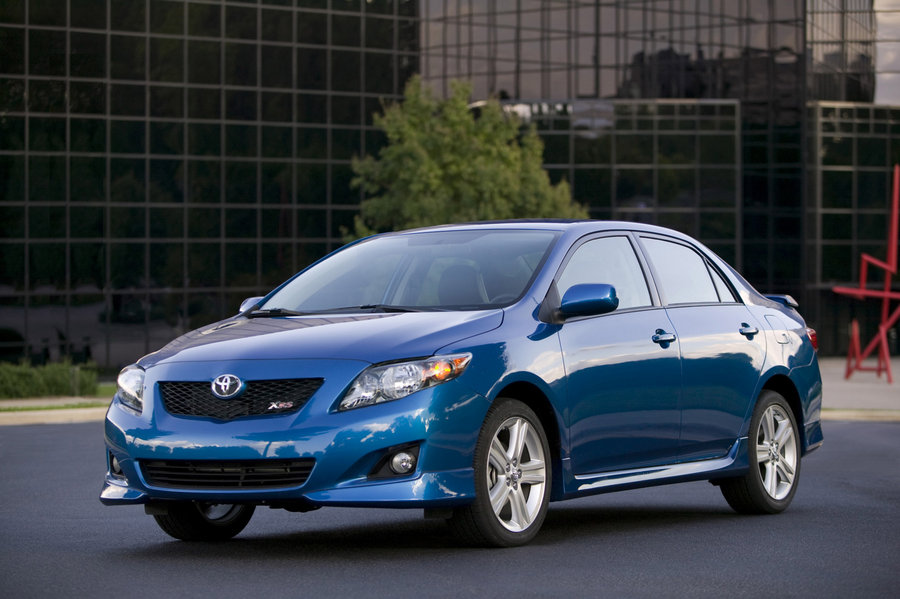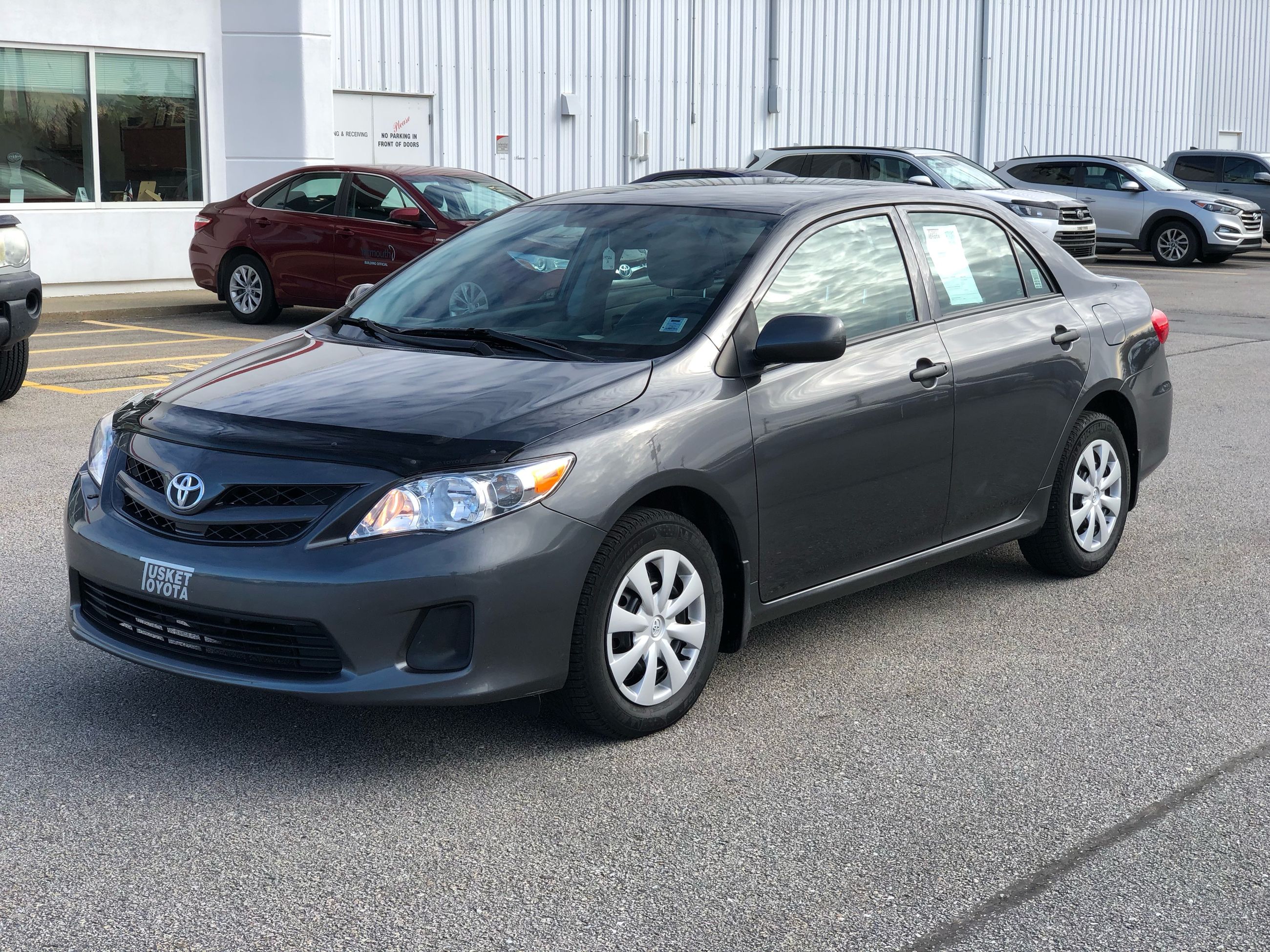Overview of Toyota Used Cars
The used Toyota car market is a significant segment of the overall used car market, consistently attracting buyers seeking reliability, affordability, and a proven track record of performance. Toyota’s reputation for durability and longevity translates into a robust used car market, offering a wide array of models and price points. This makes it a compelling option for both budget-conscious buyers and those looking for vehicles with lasting value.
The used Toyota market features a wide selection of models, from compact cars to SUVs and trucks. This variety caters to diverse needs and preferences. Common models in the used market include the Camry, Corolla, RAV4, and Tacoma, each with its own set of features and price points. Understanding these models and their associated values is key to making informed purchasing decisions.
Typical Features and Models
Toyota’s used car market offers a range of models, reflecting the brand’s diverse product line. From the fuel-efficient Corolla to the spacious and reliable Camry, and the popular RAV4 SUV, used Toyotas are a common sight on roads worldwide. These models often maintain their value well due to the brand’s reputation for quality.
Reasons for Choosing Used Toyota Vehicles
Numerous factors contribute to the appeal of used Toyota vehicles. Buyers frequently cite the vehicles’ reliability and durability as top priorities. The long lifespan of Toyota models, coupled with the often-competitive pricing of used vehicles, makes them a financially attractive option. Additionally, the availability of a wide range of used models ensures that potential buyers can find a vehicle that meets their specific needs and preferences.
Price Range for Various Used Models
The price range for used Toyota models varies considerably depending on factors like the model year, mileage, condition, and features. Generally, more recent models, lower mileage vehicles, and those with additional features, like navigation or premium sound systems, command higher prices. The table below provides a general guideline for price ranges for some popular models.
| Model | Price Range | Mileage | Key Features |
|---|---|---|---|
| Camry | $10,000-$20,000 | 50,000-100,000 | Reliable engine, spacious interior, typically available in various trim levels, affecting price |
| Corolla | $8,000-$15,000 | 60,000-120,000 | Fuel efficiency, affordable price point, compact size, typically available in various trim levels, affecting price |
| RAV4 | $12,000-$25,000 | 50,000-100,000 | Spacious SUV, versatile, typically available in various trim levels, affecting price |
Factors Affecting Used Toyota Car Prices
Used Toyota cars, like any used vehicle, are subject to various factors that influence their market value. Understanding these factors is crucial for both buyers and sellers to make informed decisions. Appreciating the interplay of mileage, condition, maintenance, year, and regional variations provides a clearer picture of the pricing landscape.
Used Toyota car prices are a complex interplay of multiple variables. These variables can range from the vehicle’s condition and maintenance history to its year of manufacture, mileage, and even regional market fluctuations. Recognizing the significance of each factor is key to evaluating a used Toyota’s true worth.
Mileage Impact on Value
Mileage is a significant determinant of a used Toyota’s price. Higher mileage typically translates to a lower price due to increased wear and tear on the vehicle’s components. The rate of depreciation varies considerably based on the vehicle’s design, construction, and the type of driving it has endured. For instance, a Toyota Camry with 20,000 miles on the odometer is likely to command a significantly higher price compared to one with 150,000 miles. This depreciation is not linear; it accelerates as mileage increases.
Condition and Maintenance History
The overall condition of a used Toyota car plays a pivotal role in its price. A vehicle in excellent condition, with a well-documented maintenance history, will fetch a higher price than one with visible signs of neglect or damage. A meticulously maintained Toyota, with regular servicing and documented repairs, often indicates a lower risk of future mechanical issues, increasing its perceived value. Buyers should carefully inspect the vehicle for any signs of damage or wear and tear.
Year of Manufacture Influence
The year of manufacture significantly impacts the price of a used Toyota. Older models, while potentially offering a lower price point, might have fewer advanced features or technological advancements. Newer models, with their upgraded features and potentially better fuel efficiency, will typically command a higher price. However, this relationship isn’t always linear. The specific model and features of the vehicle must be considered in the context of the year of production.
Regional Price Variations
Regional differences in used car prices for Toyota models can be substantial. Factors such as local demand, economic conditions, and specific market trends in different regions contribute to these variations. For example, a specific Toyota model might be more expensive in areas with higher incomes and lower supply. The availability of comparable models and the prevalence of similar vehicles in the market also influence pricing.
Correlation Between Mileage and Price (Example)
The following table illustrates the estimated price correlation between mileage and condition for a hypothetical Toyota Corolla:
| Mileage | Estimated Price | Condition |
|---|---|---|
| 20,000 | $20,000 | Excellent |
| 80,000 | $15,000 | Good |
| 150,000 | $10,000 | Fair |
This table provides a general guideline; actual prices can vary based on numerous factors. It’s crucial to remember that these are estimated values, and a thorough inspection of the vehicle is essential for accurate assessment.
Buying a Used Toyota Car
Purchasing a used Toyota car can be a rewarding experience, offering a balance between affordability and reliability. Thorough research, a pre-purchase inspection, and informed negotiation are crucial to securing a vehicle that meets your needs and budget. This process requires careful consideration of various factors to ensure a positive and successful transaction.
Conducting Thorough Research
Understanding the specific model’s history and market value is essential. Extensive online resources provide detailed information on specific models, including reviews, specifications, and common maintenance issues. Reviewing online forums and communities dedicated to Toyota owners can provide insights into real-world experiences and potential problems. Analyzing market trends and pricing data for similar used vehicles can help establish a realistic budget and negotiation point.
Importance of a Pre-Purchase Inspection
A pre-purchase inspection is critical to uncovering potential mechanical or structural issues. A qualified mechanic or independent inspection service can perform a comprehensive check, identifying any hidden problems. This proactive step can save you from costly repairs down the road and ensure the vehicle’s condition aligns with its advertised value. A detailed report from the inspection provides concrete evidence and aids in negotiation.
Questions to Ask the Seller
Thorough questioning of the seller is essential. Inquire about the car’s service history, including dates of maintenance, repair records, and any accidents or damage. The seller should be able to provide a detailed account of the vehicle’s usage and maintenance. Asking about the car’s mileage, operating hours, and any modifications are also vital to understand the vehicle’s overall condition. Specific questions should focus on any recent repairs, unusual noises, or unusual smells.
Evaluating the Condition of a Used Toyota
A checklist ensures a comprehensive evaluation of the vehicle’s condition. This checklist should include exterior details such as paint condition, dents, scratches, or rust. Interior components such as the upholstery, dashboard, and electronics should be inspected. The functionality of all systems, including the air conditioning, heating, sound system, and electrical components, should be checked. A thorough examination of the engine, transmission, and suspension components is essential to assess the vehicle’s overall mechanical condition.
Negotiating the Price of a Used Toyota
Negotiating the price of a used Toyota requires a strategic approach. Researching comparable vehicles and their current market value is the foundation of a fair negotiation. Combining this research with the results of a pre-purchase inspection empowers you to establish a realistic offer. A well-prepared negotiation strategy considers the vehicle’s condition, market value, and your budget to achieve a mutually beneficial agreement. The table below Artikels the key steps in the negotiation process.
| Step | Action |
|---|---|
| 1 | Research the model and its history, including similar vehicles’ prices. |
| 2 | Schedule a pre-purchase inspection to understand the vehicle’s current condition. |
| 3 | Based on research and inspection, present a fair offer that reflects the vehicle’s value and your budget. |
Maintaining a Used Toyota Car

Proper maintenance is crucial for extending the lifespan and preserving the value of a used Toyota. Neglecting routine upkeep can lead to costly repairs down the road, potentially diminishing the vehicle’s overall reliability and performance. By understanding and adhering to a consistent maintenance schedule, you can significantly reduce the risk of unexpected breakdowns and maximize the enjoyment of your used Toyota.
Maintaining a used Toyota involves more than just oil changes. It encompasses a comprehensive approach to ensuring the vehicle’s components operate efficiently and safely. Regular checks and timely repairs prevent minor issues from escalating into major problems, ultimately saving you money and frustration.
Routine Maintenance Schedule
A well-maintained used Toyota will perform better, last longer, and retain its resale value. A consistent maintenance schedule, tailored to your specific vehicle’s age and mileage, is essential for optimal performance. This schedule should incorporate essential tasks like oil changes, tire rotations, fluid checks, and inspections for wear and tear.
Essential Maintenance Items
Regular maintenance is vital for a used Toyota’s longevity. A proactive approach ensures that problems are caught early, preventing more extensive and costly repairs. Essential maintenance items encompass various aspects of the vehicle’s mechanical and electrical systems.
- Oil Changes: Regular oil changes are critical for lubricating engine components and preventing premature wear. Follow the manufacturer’s recommended intervals, which often depend on driving conditions and mileage.
- Fluid Checks and Top-ups: Checking and topping off fluids like coolant, brake fluid, power steering fluid, and transmission fluid is essential for optimal vehicle function. Low fluid levels can lead to serious damage.
- Tire Rotations and Pressure Checks: Regular tire rotations and pressure checks are crucial for even tire wear and optimal handling. Proper tire care can improve fuel efficiency and vehicle safety.
- Filter Replacements: Air filters, fuel filters, and cabin air filters should be replaced according to the manufacturer’s recommendations. These filters ensure optimal engine performance and maintain a clean interior environment.
- Brake Inspections: Regular brake inspections are vital for ensuring safe stopping power. Any signs of wear or damage should be addressed immediately.
- Component Inspections: Regular visual inspections of belts, hoses, and other components can identify potential issues before they become major problems. Pay close attention to any unusual noises or vibrations.
Cost of Maintenance
The cost of maintaining a used Toyota can vary significantly depending on the model, its age, mileage, and the specific maintenance tasks required. Some models may require more frequent or costly maintenance compared to others. Researching the typical maintenance costs for your specific Toyota model can help you budget accordingly.
Extending the Lifespan of a Used Toyota
Taking proactive steps to maintain your used Toyota can significantly extend its lifespan and overall value. This includes not only following a consistent maintenance schedule but also driving the vehicle responsibly and addressing any potential issues promptly.
- Gentle Driving: Avoid harsh acceleration and braking to minimize wear and tear on critical components.
- Proper Storage: If the vehicle is not in frequent use, ensure proper storage to prevent moisture damage and component deterioration.
- Regular Inspections: Conduct regular inspections to catch any issues early, preventing them from escalating.
Maintenance Requirements Table
The table below provides a general overview of maintenance requirements for different Toyota models based on their age and mileage. Note that these are estimations, and specific needs may vary based on driving conditions and individual vehicle history.
| Model | Age | Mileage | Maintenance |
|---|---|---|---|
| Camry | 5 years | 50,000 miles | Oil change, tire rotation, fluid checks |
| RAV4 | 3 years | 30,000 miles | Oil change, tire rotation, brake inspection, filter replacements |
| Prius | 7 years | 70,000 miles | Oil change, tire rotation, fluid checks, battery inspection |
Resale Value of Used Toyota Cars

Toyota vehicles are known for their reliability and longevity, often translating into strong resale values. Understanding the factors that influence these values is crucial for both buyers and sellers of used Toyotas. This section will delve into the specifics of used Toyota resale value, considering factors that affect it and offering insights into maintaining your used Toyota for maximum return.
The resale value of a used Toyota car is a complex interplay of several factors. Factors like model year, mileage, condition, and market demand all contribute to the final price. A well-maintained vehicle with low mileage and recent service records generally commands a higher resale value compared to a neglected one. This dynamic makes proactive maintenance a key strategy for maximizing the return on your investment.
Factors Impacting Resale Value
Several key elements influence the resale value of a used Toyota. These include the car’s model, year of manufacture, and overall condition. A higher-end trim level or specialized features often increase the resale value. The vehicle’s mileage plays a crucial role, with lower mileage generally leading to a higher price. The presence of any accidents or damage history can significantly decrease the resale value. Finally, current market trends and economic conditions also impact used car values, as seen in recent years.
Average Resale Value Over Time
Toyota’s consistent quality and reliability translate into relatively stable resale values over time. However, the precise resale value varies significantly based on the specific model, trim level, and features. For example, a well-maintained Toyota Camry from 2015 with low mileage might fetch a higher price than a similar model with higher mileage or a less desirable trim. Data from various sources and online marketplaces, like Kelley Blue Book (KBB) and Edmunds, provide insight into historical resale values.
Maintaining a Used Toyota for Maximum Resale Value
Maintaining a used Toyota meticulously is paramount to preserving its resale value. Regular maintenance, including oil changes, tire rotations, and fluid checks, is crucial. Proper maintenance helps prevent costly repairs down the line, thus maintaining the vehicle’s condition and value. Addressing any potential problems promptly is also key to preventing them from escalating and impacting the vehicle’s worth. Keeping detailed records of maintenance activities is also essential. This documentation can support the vehicle’s history and add to its perceived value. This proactive approach can ensure a higher return when it comes time to sell.
Average Resale Value Table
| Model | Age (Years) | Mileage (Thousands) | Resale Value (USD) |
|---|---|---|---|
| Toyota Camry | 3 | 40 | $18,000 |
| Toyota Camry | 5 | 60 | $15,500 |
| Toyota Corolla | 2 | 25 | $13,000 |
| Toyota RAV4 | 4 | 50 | $20,500 |
Note: Resale values are estimated and may vary based on specific condition, features, and market trends.
Financing Options for Used Toyota Cars

Finding the right financing option for your pre-owned Toyota is crucial for a smooth and affordable purchase. Understanding the available loan programs, the factors influencing your choices, and the role of your credit score will empower you to make an informed decision. This section provides a comprehensive overview of financing options for used Toyota cars.
Loan Programs Available for Used Toyotas
Numerous loan programs cater to used car purchases, offering varying terms and interest rates. Banks, credit unions, and online lenders are common sources for these loans. Each lender has its own set of criteria and approval processes. Some lenders might specialize in auto loans, while others may have broader lending portfolios. Understanding these nuances is important in evaluating the best fit for your needs.
Factors to Consider When Choosing a Financing Option
Several factors influence the selection of a financing option. The interest rate, loan term, and the lender’s requirements are paramount. Additionally, fees associated with the loan, such as origination fees or prepayment penalties, must be carefully considered. These fees can significantly impact the overall cost of borrowing. Your personal financial situation, including your credit score and budget, also plays a pivotal role in choosing the right financing option.
Comparison of Financing Options
Different financing options offer varying interest rates and loan terms. For instance, a loan from a bank might have a slightly higher interest rate compared to a loan from a credit union, but the credit union may offer more flexible repayment options. Online lenders, while often offering competitive rates, may have stricter eligibility criteria. Carefully evaluating these factors helps in selecting the most suitable option. A longer loan term might result in lower monthly payments but accrue more interest over the loan’s lifespan. A shorter term, while having higher monthly payments, could save you money in the long run if the interest rate is lower.
Credit Scores and Financing
A strong credit score significantly impacts your loan approval chances and the interest rate you’ll receive. Lenders typically use credit scores to assess your creditworthiness and determine the risk associated with lending you money. A higher credit score usually translates to a lower interest rate and better loan terms. If your credit score is not where you’d like it to be, exploring options like a secured loan or co-signing with a person who has a strong credit history can help improve your chances of approval. Conversely, a lower credit score could result in a higher interest rate and potentially stricter loan terms.
Summary of Financing Options for Used Toyota Cars
| Option | Interest Rate | Terms |
|---|---|---|
| Bank Loan | Potentially higher | Varying terms, often with standard requirements |
| Credit Union Loan | Potentially lower than banks | Flexible terms, often community-focused |
| Online Lender | Competitive rates | Stricter eligibility criteria, quick processing |
| Secured Loan | Potentially higher than unsecured loans | May be available for those with lower credit scores |